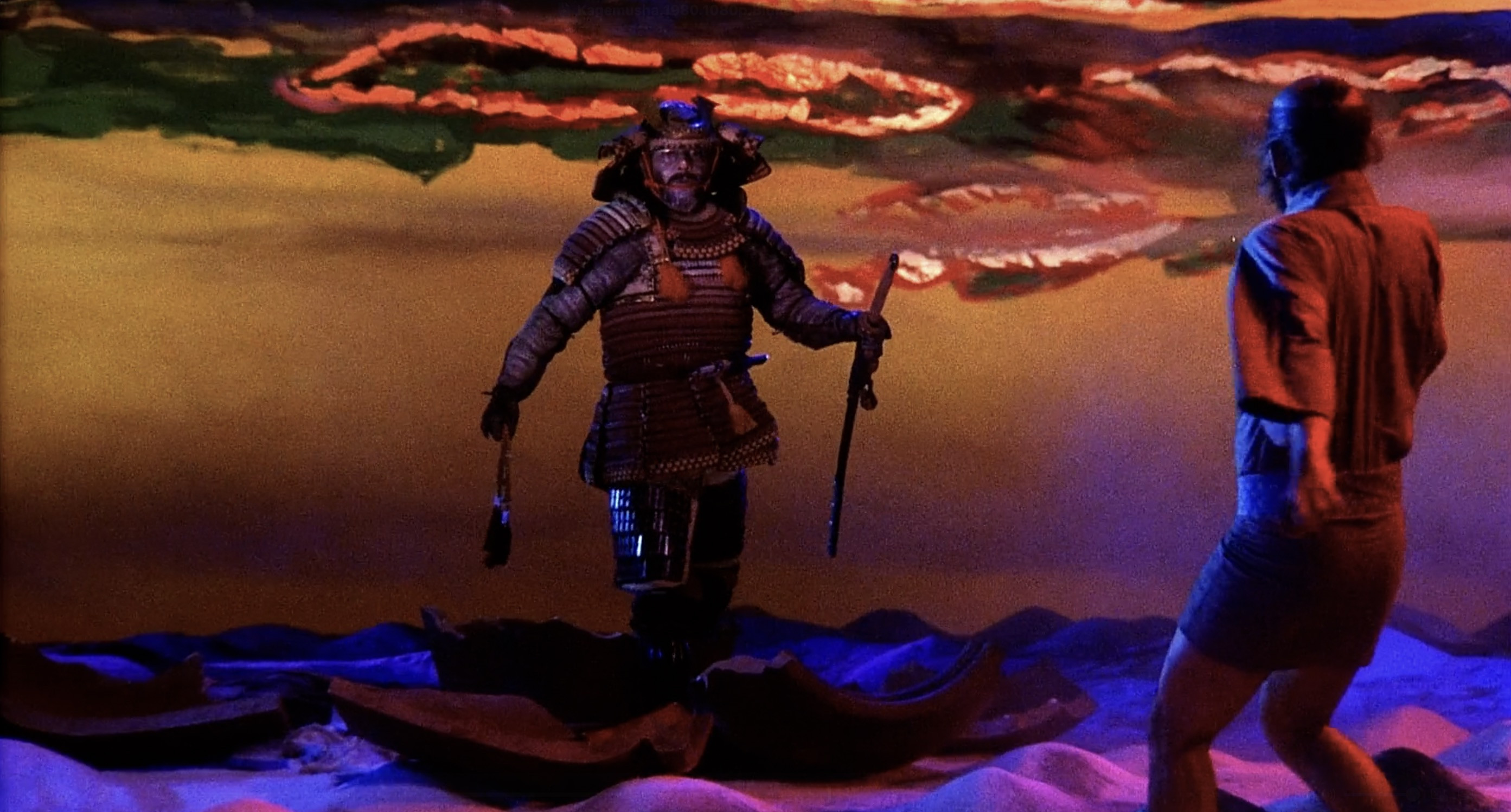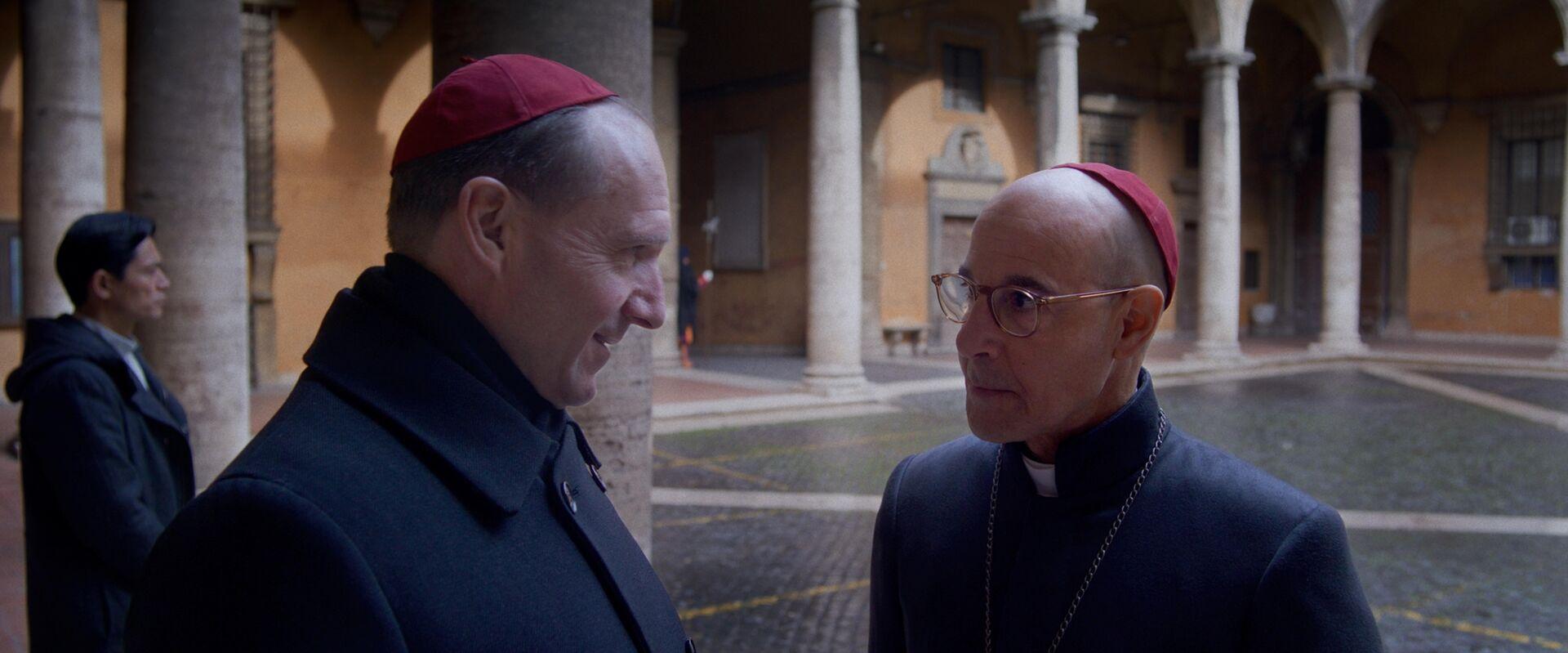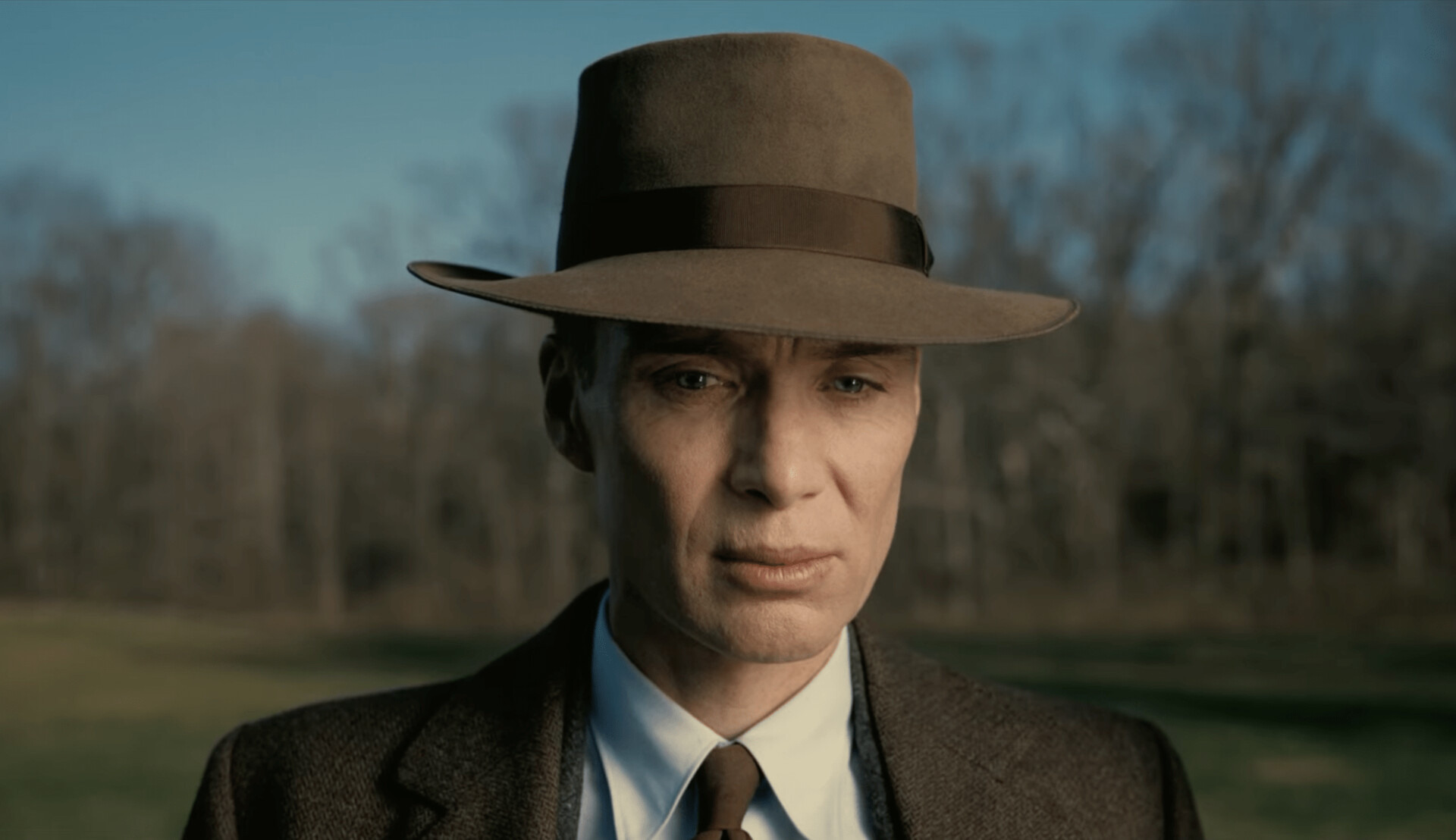Kagemusha (1980)

Kurosawa likes to do this thing where he makes a scene three or four times longer than it needs to be just to try and give the audience time to appreciate the gravity of what’s happening. It's on full display here, like during the nighttime battle at Takatenjin Castle, or at the end when the army is slaughtered and there’s like 5 minutes of slowmo shots of horses kicking their legs in the air.
I know that in the 1980s they loved their slowmo shots. I don't mind these big atmospheric scenes, but I don't think that I like them, either. Kagemusha moves along at such a good pace for so much of its runtime, that when we're treated to 10 minutes of men shouting and running back and forth in the dark, you feel it. I wanted to get up and make a cup of tea and then come back when the story got going again.
However, the parts of the movie where the story does got going are a treat. Visually stunning, dramatic, propulsive. And Tetusya Nakadai is a treasure as per. I could spend the rest of my life watching movies where he just stares traumatised into the middle distance.


